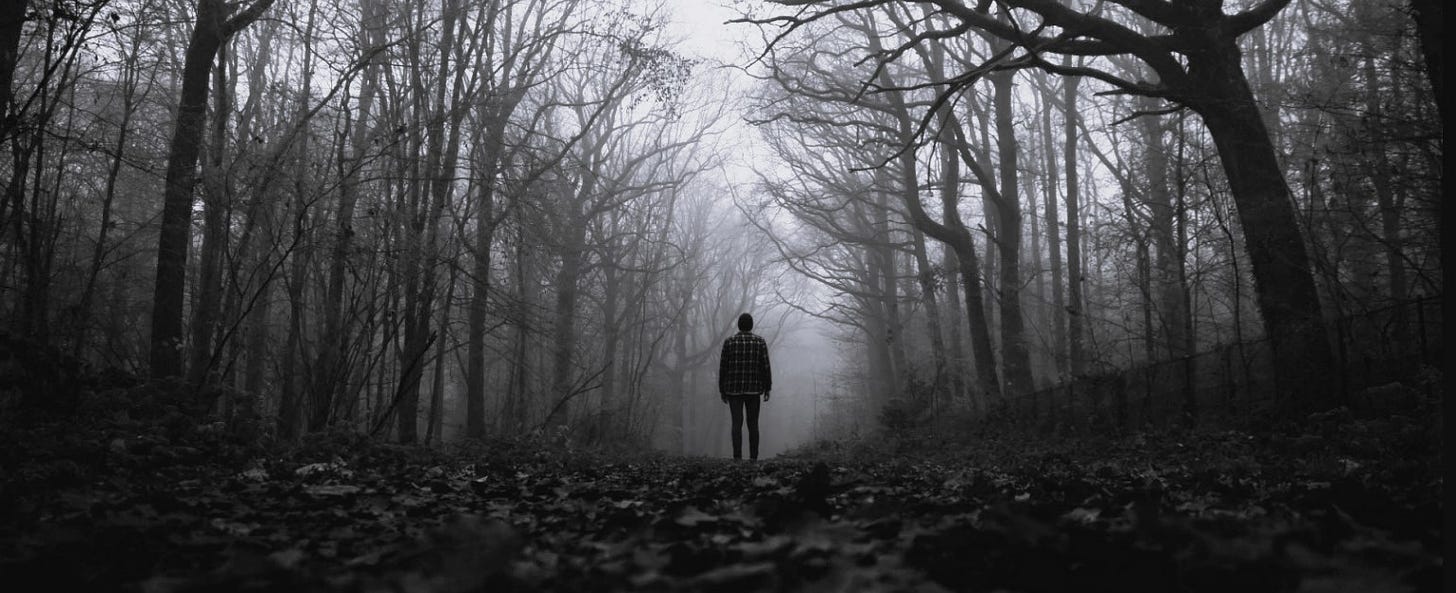
Have I, for the last 30 years, been mistakenly self-identifying as an anarchist?
This was the question that flashed momentarily through my mind while I was reading Ernst Jünger’s 1977 novel Eumeswil. [1]
In this work – a philosophical rumination thinly disguised as post-collapse science fiction – he repeatedly contrasts his own concept of the anarch with that of the anarchist.
Early on in the account, Jünger has his narrator, Martin, declare that his “fundamental structure”, under the surface of being a reliable assistant to Eumeswil’s ruler, is “anarchic” [2] and explains:
That seems complicated, but is simple, for everyone is anarchic; this is precisely what is normal about us. Of course, the anarchic is hemmed in from the very first day by father and mother, by state and society. Those are prunings, tappings of the primordial strength, and nobody escapes them. One has to resign oneself. But the anarchic remains, at the very bottom, as a mystery, usually unknown even to its bearer. It can erupt from him as lava, can destroy him, liberate him. Distinctions must be drawn here: love is anarchic, marriage is not. The warrior is anarchic, the soldier is not. Manslaughter is anarchic, murder is not. Christ is anarchic, Saint Paul is not. Since, of course, the anarchic is normal, it is also present in Saint Paul, and sometimes it erupts mightily from him. These are not antitheses but degrees. The history of the world is moved by anarchy. In sum: the free human being is anarchic, the anarchist is not. [3]
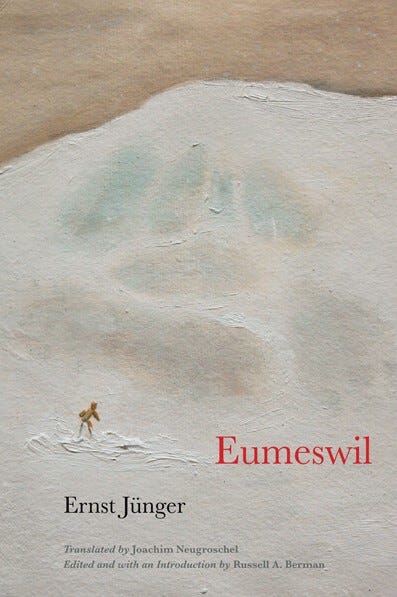
Jünger doubles up on this (provocative!) contrast on many occasions in the book, using his term anarch to signify the truly anarchic person.
“The anarch can lead a lonesome existence; the anarchist is sociable and must get together with peers”. [4]
“It is especially difficult to tell the essential from that which is similar to and indeed seems identical to it. This also applies to the anarch’s relation to the anarchist. The latter resembles the man who has heard the alarm but charges off in the wrong direction”. [5]
“The positive counterpart of the anarchist is the anarch. The latter is not the adversary of the monarch but his antipode, untouched by him, though also dangerous. He is not the opponent of the monarch, but his pendant. After all, the monarch wants to rule many, nay, all people; the anarch only himself”. [6]
“For the anarch, little is changed when he strips off a uniform that he wore partly as fool’s motley, partly as camouflage. It covers his spiritual freedom, which he will objectivate during such transitions. This distinguishes him from the anarchist, who, objectively unfree, starts raging until he is thrust into a more rigorous straitjacket”. [7]
“The anarchist, as the born foe of authority, will be destroyed by it after damaging it more or less. The anarch, on the other hand, has appropriated authority; he is sovereign”. [8]
The anarch, as described by Jünger, lives in “a state of primeval freedom”. [9]
He compares him to the forest fleer – a reference to his 1951 book The Forest Passage [10] – who is himself not to be confused with the partisans, who “are a collective” and ultimately serve “the great powers”. [11]
“The forest flight confirms the independence of the anarch, who is basically a forest fleer anywhere, anytime, whether in the thicket or in the metropolis, whether inside or outside society”. [12]
The difference between the two is that “the forest fleer has been expelled from society, while the anarch has expelled society from himself. He is and remains his own master in all circumstances”. [13]
Although Jünger’s anarch embraces individual freedom, he is “no individualist”: [14] his is a freedom to which “everybody is entitled”. [15]
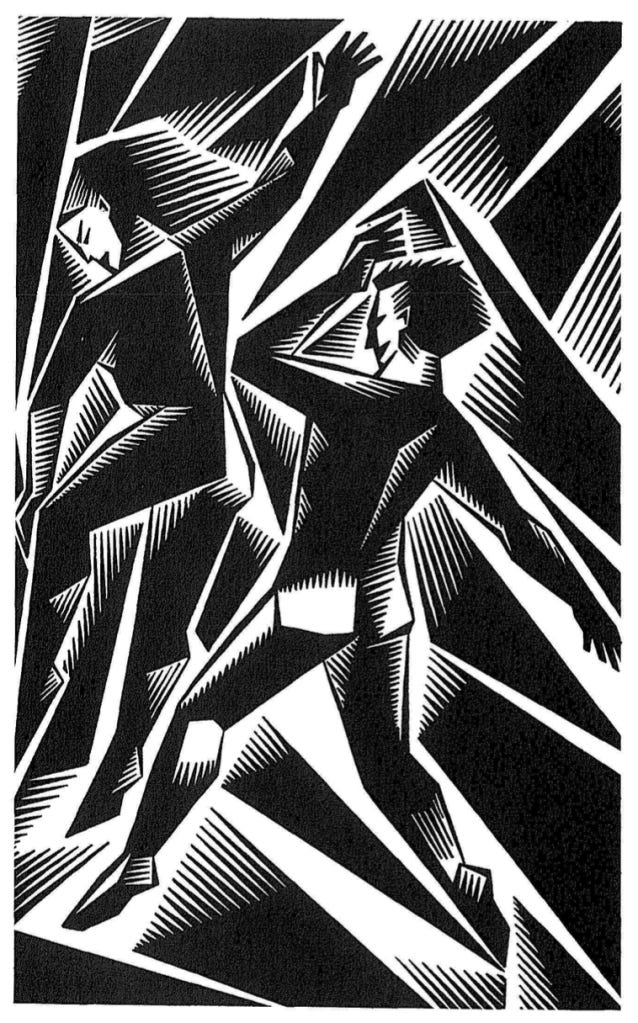
His character Martin, whose “study of anarchism” is his “secret focus”, [16] does concede that his distinction between anarch and anarchist is “merely one of degree, not of principle. As in everyone, as in all of us, the anarch is also concealed in the anarchist – the latter resembling an archer whose arrow has missed the bull’s-eye”. [17]
The inner anarch is very deeply concealed in those who promote a “state capitalism” which is “even more dangerous than private capitalism because it is directly tied to political power”. [18]
Martin, a historian, writes about a group called the Free Men, whose meetings in Germany were initially attended by Karl Marx and Friedrich Engels.
“In the long run, needless to say, the atmosphere was not to their liking; they wanted to take over the state, not abolish it.
“Gradually, yet more and more distinctly, the Free Men distanced themselves from them… The dislike was mutual…
“Such encounters make it obvious that the socialists recognize their archenemy not in the state or in the Church or in capitalism; all those institutions, clarified by scholarship and refashioned by propaganda, can be replaced.
“Their struggle is waged not against but for power. Their deadly enemy is anarchy, represented on the one side by the idealistic anarchist and on the other by the lumpenproletariat, which, in a crisis, casts off the final trappings of law and order, and even humanity, and closes the debate.
“In order for them to resume under a new constellation, all those entities, indispensable at absolute zero, are the first that must be liquidated”. [19]
Jünger also cites warnings about state socialism from American anarchist Benjamin Tucker who, in describing the unfree society it would usher in, writes: “Thus will Authority achieve its acme and Monopoly be carried to its highest power”. [20]
Noting the way in which Tucker comes up with unusual statements such as “anarchy is order”, Jünger comments: “Here, an anarch smashes through the anarchist system”. [21]
What I noted when reading Eumeswil is that I share the deep feeling for freedom that Jünger attributes to the anarch.
For me – and, I would say, for the classical anarchist viewpoint – individual freedom is not something that is opposed to the collective well-being, but is an essential aspect of it.
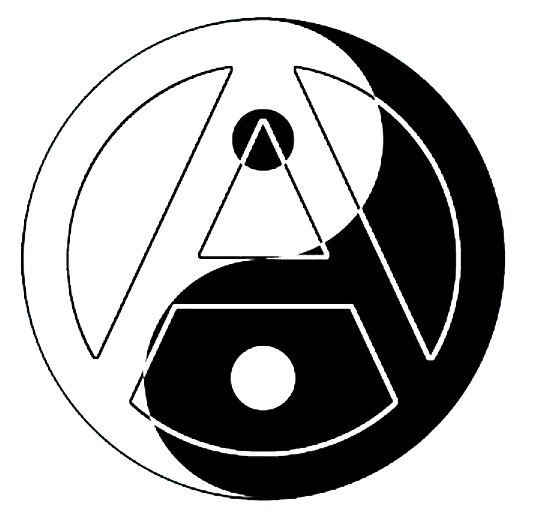
Individual and collective happiness depend on each other; they fit together like the yin and yang of the familiar Taoist symbol.
No community can be free if all the individuals within it are not free and no individual can be free if he or she lives in a community that is not free.
However, not all contemporary anarchists seem to accept or understand this keystone of the philosophy.
This became abundantly clear to me when I was attacked by so-called anarchists for standing up for freedom in 2020.
As I described at the time, these “comrades” could only bring themselves to talk about individual freedom in scare quotes and regarded my embrace of this dangerous notion as proof that I had turned into a “right-wing” supporter of Donald Trump! [22]
But, looking back, this wasn’t the first time I had encountered the same kind of reaction from people with whom I had imagined I shared a world view.
Some twenty years ago, I wrote 47 Random Fragments of Unauthorised Hope and Despair, [23] a collection of short stories set in a dystopian future of total surveillance, censorship and control – towards which we have obviously moved ever closer in the interim.
I sent a copy to a fellow anarchist who had enjoyed some of my other political writing, with a view to finding someone to publish it.
To my surprise, he totally distanced himself from the content, which he evidently regarded as incompatible with anarchism as he knew it.
The problem, he explained, was that I had not described any collective resistance to tyranny.
He had missed the whole point, in fact. This imagined future was so totally policed and controlled that it was virtually impossible to move a muscle without authorisation, so any kind of organising would have been impossible.
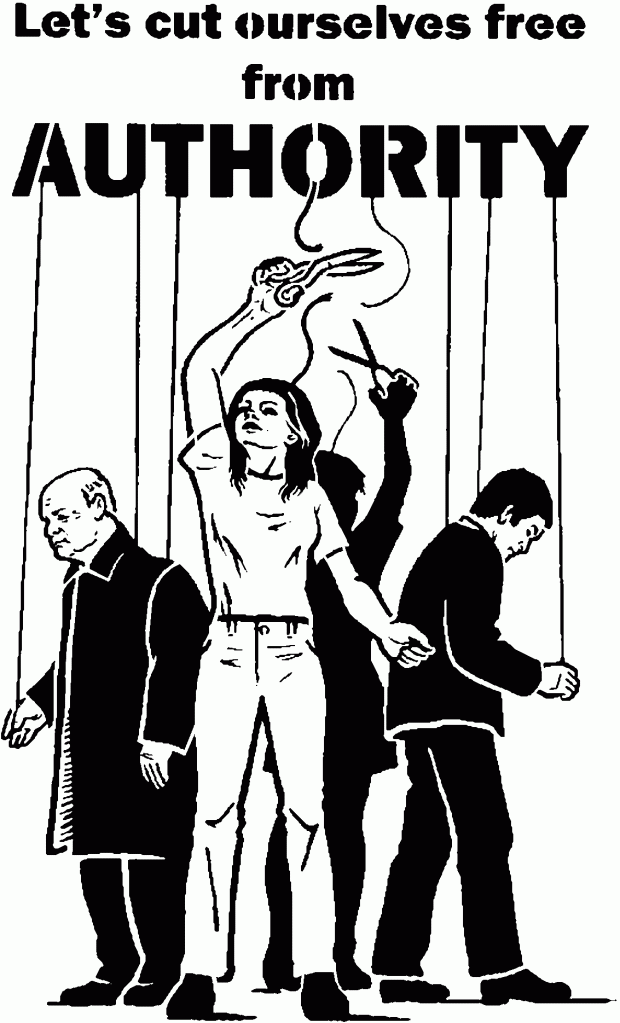
The positive message of the book was that, in even the most extreme circumstances, the love of freedom will live on in human hearts.
I think that, on these two occasions, I was experiencing first-hand Jünger’s distinction between anarch and anarchist.
But does this mean that I am not really an anarchist after all and should stop using the label?
No, because as I said, real anarchism glories in the paradox of individual and collective freedom being two sides of one coin.
It is denying the importance of individual freedom, rather than proclaiming it, that is incompatible with the anarchist outlook!
The fact that certain kinds of “anarchist” fail to see this and are incapable of making the mental leap above shallow either/or binary thinking, is a reflection of a more general corruption of their thought.
A once-vibrant philosophy has been submerged by successive waves of narrow, sterile, pseudo-scientific, “progressive” thinking more commonly associated with Marxism.
As Jünger writes: “Above all, the anarch must not think progressively. That is the anarchist’s mistake; he thereby lets go of the reins”. [24]
For instance, the idea that we are not born as blank slates, in need of being formatted and programmed by an “educational” system, but that we each have innate qualities, is now considered anathema by many anarchists, I have discovered.
This is a bad thing called “essentialism”, from their blinkered and dogmatic point of view.
But it means they have lost the crucial anarchist insight of why it is that state authority is not only unnecessary but harmful, namely that human beings, like all animals, have an innate tendency to co-operate and practise mutual aid in order to survive.
Likewise, the metaphysical awareness of our belonging to concentric circles of larger organisms and ultimately to The Whole, is dismissed as absurd or superstitious by anarchists trapped in the modern materialistic mindset.
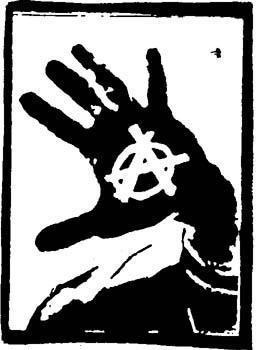
This renders them incapable of understanding why the source from which the individual draws her or his freedom is in fact more collective than the human collectivities with which they identify.
Jünger says this as well, in fact, when describing anarchists: “Just what do they suffer from? An underdeveloped notion of freedom. If they were to dig in one story farther down and recognize themselves as anarchs, they would be spared a great deal. They would seek freedom in themselves and not in the collective”. [25]
When we descend deep into our inner selves and separate ourselves from our egos (as Martin in Eumeswil is constantly trying to do), we discover a belonging that is authentic and vertical.
We connect to the roots of humankind, the living earth and the cosmos. We touch the source of vital energy, the freedom to be that surges through us when we allow it.
That primeval fire of inner individual freedom then becomes a beacon for the freedom of all.
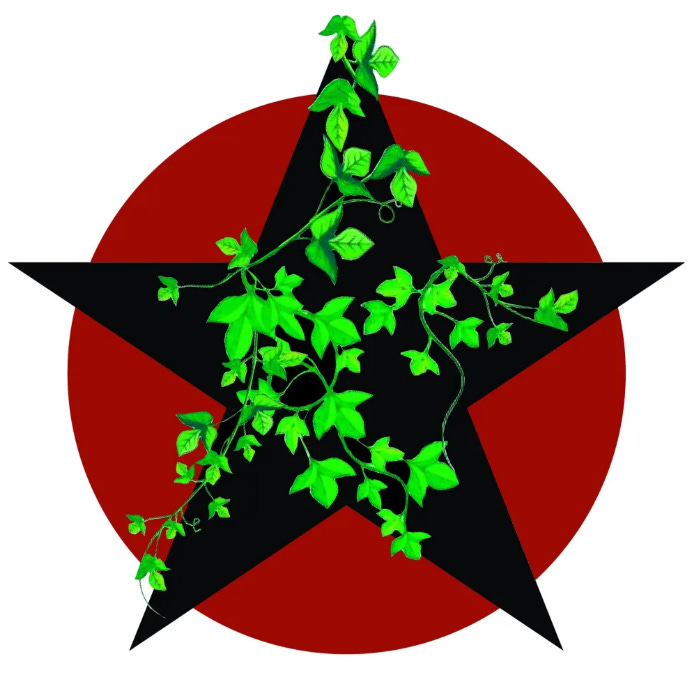
[1] Ernst Jünger, Eumeswil, trans. by Joachim Neugroschel, ed. and intr. by Russell A. Berman (Candor, NY: Telos Press Publishing, 2015). All subsequent page references are to this work.
[2] p. 29.
[3] Ibid.
[4] Ibid.
[5] p. 260.
[6] p. 30.
[7] p. 89.
[8] p. 196.
[9] p. 124.
[10] See, ‘R is for Resistance’, The Acorn 69, November 2021. https://winteroak.org.uk/2021/11/22/the-acorn-69/#3
[11] p. 107.
[12] p. 114.
[13] p. 115.
[14] p. 220.
[15] p. 108.
[16] p. 243.
[17] p. 244.
[18] p. 252.
[19] p. 253.
[20] Benjamin Tucker, ‘State Socialism and Anarchism. How Far They Agree, and Wherein They Differ’ (1888).
https://theanarchistlibrary.org/library/benjamin-r-tucker-state-socialism-and-anarchism
[21] p. 261.
[22] Paul Cudenec, ‘Anarchists against freedom’, April 2020. https://winteroak.org.uk/2020/04/26/anarchists-against-freedom/
[23] https://winteroak.org.uk/wp-content/uploads/2023/03/47-random-fragments2.pdf
[24] p. 245.
[25] p. 238.
Leave a Reply